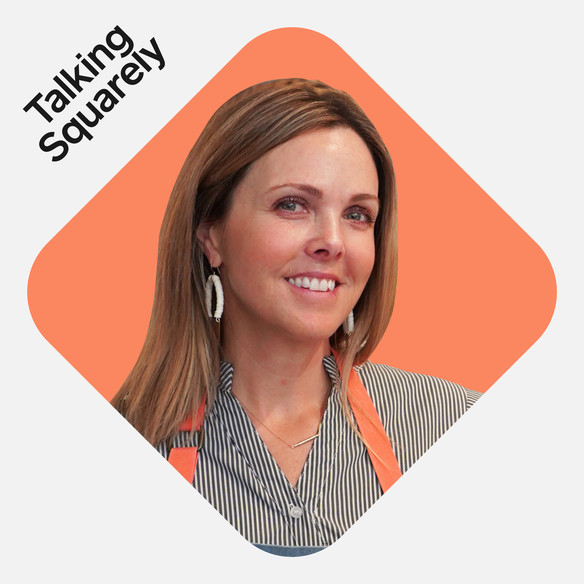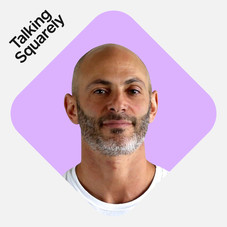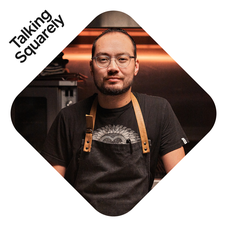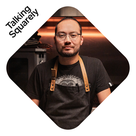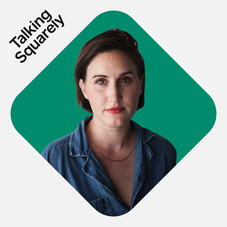Table of contents
A little bit about the episode and the small business owners featured…
The COVID-19 pandemic has reshaped the global economy, and in many ways small businesses have been hardest hit. Four business owners from across the country discuss how their respective regions are approaching life after coronavirus, how they’re grappling with the potential return to a new normal, and their experiences navigating it all — from unclear local and federal guidelines to the ability to quickly adapt when reopening.
This episode features Kallie and Lindsay Wesley, sisters and co-owners of Juxtapose in Tampa, FL; Carrie Morey, founder of Callie’s Little Hot Biscuit in Charleston, SC; and Marc Magliozzi, owner of Dozzino in Hoboken, NJ. Want to know a little bit more about our host? Follow Square’s Nelson Murray for more.
“At the end of the day, if we’re not supposed to have these restaurants, and they’re to close, then that is what is in the cards for me. I’m not going to let it ruin my life. I’m scrappy. If I need to go get a job at Domino’s and deliver pizza, I’ll do it. I’m not worried about my livelihood.” says Callie’s Little Hot Biscuit founder Carrie Morey.
Callie’s Little Hot Biscuit has been operating for 15 years, still serving handmade biscuits using a family recipe. With its roots as an online mail order business, it grew to brick and mortar locations as well as selling wholesale to grocery stores. The COVID-19 pandemic caused a regression of sorts as in person business operations scaled back and the focus was once again on selling online. Something founder Carrie Morey says helped them avoid layoffs but their business isn’t the only one adapting to this new normal.
For sisters and co-owners Kallie and Lindsay Wesley of Juxtapose, their location in Florida meant adjusting to COVID-19 protocols while helping their employees work safely. “During times of heartache and things like that, your community comes around a certain theme or a certain event that’s going on, but this is so unique because it’s a worldwide pandemic. So it’s interesting hearing from all different states and how it’s affecting other people.” says Kallie
Dozzino Owner Marc Magliozzi tries to put it into perspective, “My favorite quote is from Bob Gill. He’s a graphic designer. I went to school for graphic design. ‘If you ask the right questions, the design will design itself.’” When it comes to doing the right thing for the business and customers, for Dozzino that has meant making tough decisions. “You got to figure out…If you have to close your business, you have to close your business. If you have to let some employees go for a little bit, you got to let some employees go for a little bit. But just keep on asking questions, because that’s the only way to solve a problem.”
All three businesses have turned to their customers, their community for support during this time. With the COVID-19 pandemic reshaping how businesses across the country operated, these small business owners faced new safety protocols, sustaining their business operations and continuing to connect with their customers during in a time where business was no longer as usual.
Talking Squarely, a Podcast by Square
There isn’t one playbook for running a business and the decisions business owners face are rarely straightforward. Every other week, we’ll bring together independent business owners to have frank discussions and share their perspectives on some of the most pressing issues impacting their lives—from the changing rules of commerce to work-life balance.
Full transcript below
Carrie Morey:
At the end of the day, if we’re not supposed to have these restaurants, and if they’re to close, then that is what is in the cards for me. I’m not going to let it ruin my life. I’m scrappy. If I need to go get a job at Domino’s and deliver pizza, I’ll do it. I’m not worried about my livelihood.
Nelson Murray (host):
Hi. I’m Nelson Murray and you’re listening to Talking Squarely. There isn’t one playbook for running a business, and the decisions business owners face are rarely straightforward. Every other week, we’ll bring together independent business owners to have frank discussions and share their perspectives on some of the most pressing issues impacting their lives, from the changing rules of commerce to work/life balance.
The COVID-19 pandemic has reshaped the global economy, and in many ways, small businesses have been hardest hit. Four business owners from across the country discuss how their respective regions are approaching life after coronavirus, how they’re grappling with a potential return to a new normal, and their experiences navigating it all.
Carrie Morey:
I started a handmade biscuit business 15 years ago with my mom, Callie’s, recipe.
Nelson Murray (host):
That’s Carrie Morey, owner of Callie’s Hot Little Biscuit.
Carrie Morey:
It started out as an online mail order business only, and evolved into selling wholesale to grocery stores, which then also evolved into opening grab and go eateries, which now we have four — two in Charleston, one in Atlanta, one in Charlotte, and a food truck, and a cookbook.
Nelson Murray (host):
Her Charlotte location opened just five weeks before the pandemic hit in March. Another business owner familiar with managing multiple locations is Marc Magliozzi, a restaurateur located in New Jersey.
Marc Magliozzi:
I currently own three different restaurants with a bunch of different partners, but all in this similar area, probably within half a mile from each other. Dozzino is wood-fire pizza. Corto is my second, well third restaurant; I shut one down in the meantime. Corto is an Italian restaurant focusing on handmade pastas. Then Bread and Salt, I just partner up with my partner, which is primarily a bakery and constantly evolving.
Nelson Murray (host):
In Florida, Kallie and Lindsay Wesley are a sister duo who started their business together in 2011.
Kallie Loebel:
Our store, Juxtapose Apparel & Studio, is a women’s clothing store. We also sell home furnishings, gifts, accessories, and art. We also offer interior design services through the shop.
Nelson Murray (host):
While these business owners may be geographically spread out, all are facing similar obstacles as they continue to try to keep their businesses afloat during this unpredictable time.
Lindsay Wesley:
Being in Florida, we’re so used to, during the spring, being outdoors. Being in a mixed use shopping center, so obviously during a time when a stay-at-home order is taking place in your city, foot traffic is not happening. So I think for us, the number one impact it had was, not only did we obviously have to close, but the lack of foot traffic that all of the small businesses in the area had.
Carrie Morey:
Yeah, we’re definitely in a similar boat. We were, on March 17th, getting into the beginning of our busy season. All of our bake shops were booming with tourists and lines out the door. Things were great. Now, we are barely open on the eatery side. We have the doors locked.
I have two employees max in there three days a week filling the very few app and delivery orders that are coming in. Also, this is a huge catering time for us, so all of our catering events were obviously canceled, which is a huge revenue loss. Really the silver lining is that to have the online component and the wholesale, because grocery stores are booming right now, is what’s keeping us alive, but it did not stop us from, unfortunately, having to lay off over 40 people.
Marc Magliozzi:
My main concern was my employees and keeping them. My employees have been with me at Dozzino since I almost opened. Making sure that they had a paycheck. Making sure that they were able to support their families. Similar to my other restaurants, on all levels, our concern was making sure that everyone was able to pay their bills. We obviously have seen a drop off in sales for all restaurants, but we’ve also adapted, I think instantly.
I don’t know how familiar everybody is with Hoboken, but it is super neighborhoody, and it’s super supportive of their own here. So, we’ve been getting tons of support, people going the extra mile, tipping the extra mile, making sure everything is good with us, asking us…I know business will never be back to normal, for a while at least, but I think ever adaptable is how we have to describe the way that we’re going right now.
Kallie Loebel:
I think that is really important to note is how much our customers want to support their own community. I think that’s really great for Mark and Hoboken, and I’m sure for Carrie and Charleston as well.
Marc Magliozzi:
Yeah. Touching on the neighborhood aspect of it, I also opened my restaurant for other neighborhood…like I have friends that have other businesses that are selling stuff out of my restaurant, because I’m kind of lucky in Dozzino, lucky that we have a corner property, and I have windows all around it. So we’ve been serving our food out the window, but we’ve also been…I have a friend who owns a bakery, Sugarsuckle. She would bring her kits in, and she would be selling them for us, because she’s kind of out of the way. Customers would be coming into our restaurant, getting stuff from her. Just making sure that, not just us, but everyone around us survives.
It’s just all bets are off, I feel like. We went through Sandy here in Hoboken, I’m sure in South Carolina, you guys have been through storms, and it wiped out a bunch of businesses. I think I had that mind frame of, I don’t want to see stuff happen like that again, where places go out of business. Anything you can do to help.
Kallie Loebel:
During times of heartache and things like that, your community comes around a certain theme or a certain event that’s going on, but this is so unique because it’s a worldwide pandemic. So it’s interesting hearing from all different states and how it’s affecting other people. It’s also difficult to navigate being open, and being sensitive to how you personally are affected and how you personally feel it should be handled, without being offensive. So, it’s an interesting, “What is this new normal?” and it’s changing. I don’t want to say it’s comforting to know that everyone’s in this together, but in a way, it’s not just a Florida thing, it’s not just a South Carolina thing. It’s everywhere.
Nelson Murray (host):
Kallie’s right. The COVID-19 pandemic is an issue that everyone is dealing with. But the approach to recovery varies widely from state to state. As of May 20th, all 50 states had already begun lifting restrictions on businesses. For those situated in regions that have relaxed stay-at-home home guidelines, the challenges that come with reopening are already starting to take shape.
Carrie Morey:
I have an incredible accountant and attorney. Those things really help a ton. I lean on them daily. As far as running businesses in three different states, it is almost impossible to keep up with. I think that, at the end of the day, I have to do what makes me feel most comfortable and my staff. We have Zoom calls with our staff, like, “What is the mood? What does it look like outside your store, since I’m not there? Tell me what the neighbors are doing. How do you feel? How does the staff feel?” We are not in any hurry to open our doors.
My shops are also so small that I can technically only let four customers in at a time. On a busy Saturday, there’s no less than 30 in my shop, and it’s all grab and go. So, life is looking very different for us. We have masks for everyone, gloves, plexiglass guards, decals with signs that tell you what to do if you’ve ordered online versus coming in, and where we want you to wait. It’s really about what your level of comfort is and what your staff’s level of comfort is, and making sure that everybody feels great. I don’t know that we won’t close again. There are no rules anymore. I feel like it’s like the wild, wild West. We’re just going to do what we feel comfortable with. Today we’re going to open, and tomorrow we might not.
Kallie Loebel:
We opened on May 5th. We keep our doors open so that customers don’t have to touch the door when they come in. Out front, we have a sign that says, “Five customers at a time. Masks encouraged.” After a customer checks out, we make sure that our employees know to keep everything super clean, even the racks straight, just so that, aesthetically, it looks as straight as it possibly can, just so that customers feel more comfortable coming in and shopping.
We welcome people in, but just five at a time. We offer masks. There’s hand sanitizer in the village where our shopping center is located. I think a big part is just communicating with your employees, and asking them what we need to do to make them feel safe. Then if we get feedback from customers, we need to make sure that we implement what they’re asking for so they’ll continue to shop at Juxtapose.
Some people are just not comfortable coming out and shopping with the general public right now. So we were offering a closed shopping experience with your quaran-team, if you will.
Marc Magliozzi:
I don’t know how people are comfortable in Tampa. I don’t know how people are comfortable in Charleston. It’s really based on the people that come up to the window and order, they all say the same thing, “We cannot wait to come back. We cannot wait to come back.” But I’m like is that a true statement, or are you going to watch the news and be like, “Oh, I don’t know. I don’t know if I should.” So, we want to make sure that we’re smart about that too. That’s the thought now is how we’re going to be comfortable, how the public is going to be comfortable. You talked about closing your store down to deal with one client at a time. Yeah, all bets are on. Everything is on the table.
Nelson Murray (host):
Beyond connecting directly with customers, and gauging their comfort levels, business owners are also turning to each other for advice, and relying on local government for support. Kallie touched on how mandated street closures created an opportunity for safe outdoor dining.
Kallie Loebel:
One thing that the city’s done, it doesn’t affect us as much as it does the restaurants, but I think it was a really great call, was to close down seven main streets in our community in South Tampa for restaurants to expand their outdoor dining, to help…In an outdoor shopping center like ours, if people are going to the restaurants, they’re going to come out shopping as well. So one thing that I think South Tampa has done a phenomenal job on is expanding outdoor dining into the streets.
Carrie Morey:
I wish I could say that we had done that. I know it’s been talked about. I’m hoping that that will happen eventually, but we haven’t seen that yet in our town. But I have to say that I do feel like Charleston, specifically the restaurant industry, has been a leader in trying to do everything they can to advocate, lobby on a state and a national level, for the independent restaurants. Actually, just today, I got an email from the travel council. “How can we help you? Do you need free masks? Can we send you hand sanitizer?” So they’re constantly checking in too, and they’re asking what we need. But Charleston has, and always will be, one of the number one destinations for tourism. So, until people feel safe, and can come back and visit our city, we are all going to struggle.
Marc Magliozzi:
Our leaders that are in Hoboken now are really awesome about, “Let’s figure out what we need to do to help … We’re not just going to shut down and say, ‘You can’t do anything.’” They’re looking at, “What do we have to do to get you guys support? What do you need?” It’d be great if they told all the landlords, “Don’t accept any rent,” but that’s not realistic, I guess.
Nelson Murray (host):
Trying to predict the future has many business owners anxious about what lies ahead for their businesses. But any entrepreneur will tell you that in times of adversity, embracing change is often the key to not only surviving, but thriving.
Kallie Loebel:
Part of what it means to have a small business is to evolve and to adapt. It’s a sad truth that unless you start adapting to the changing times, some of these small businesses will get left behind, because they’re not willing to be flexible. I think that the biggest thing is adapting and being flexible to change.
I think we’re doing what we have to do to make it work. We know that we started this business with just an idea. So at the end of the day, if this idea doesn’t pan out, we’ll come up with another one.
Marc Magliozzi:
I look at the positive of everything. I don’t really try to focus on negative. There’s plenty of people that can do that. Just move forward. That’s really how I look at everything. My favorite quote is from Bob Gill. He’s a graphic designer. I went to school for graphic design. “If you ask the right questions, the design will design itself.” If you’re having a tough time, you got to ask the right questions. You got to figure out…If you have to close your business, you have to close your business. If you have to let some employees go for a little bit, you got to let some employees go for a little bit. But just keep on asking questions, because that’s the only way to solve a problem.
Lindsay Wesley:
You can’t be afraid to ask people for help and advice when you are facing an issue, because you never know what kind of advice you’ll get from somebody. It might be the most helpful thing in the world.
Carrie Morey:
I know this sounds so old fashioned, but the thing that I’ve been working on, and I try to do it every day, is I get a list every day of everyone who has ordered from us in the last week, and I’m writing handwritten thank you notes of gratitude. I have a lot of time on my hands, so writing notes, and telling people how much we appreciate their loyalty and business, not only has made me feel good, but I think that they like it too, because we get a lot of feedback on that. Every day is a new opportunity. I try every day to wake up excited and go to bed proud. I want to seize the day, be excited about the opportunities that I have, and try to work hard and feel like, “Okay, I did as much as I could today. If it didn’t work, we’re going to wake up and we’re going to try again tomorrow.”
Nelson Murray (host):
Seize the day. It’s the mantra that all three of our guests seem to live by as they look for a way through this new normal. As we continue to move forward during this pandemic, we can all take a lesson from these business owners who, staring at a sometimes uncertain future, have turned to their staff, their communities, and each other to find their path.
A special thanks to our guests, Carrie, Kallie, Lindsay, and Mark. Callie’s Hot Little Biscuit has locations in Charleston, Atlanta, and Charlotte. You can also visit their website at calliesbiscuits.com, and find them on Instagram at @callieshotlittlebiscuit. Juxtapose is currently open at the Hyde Park Village in Tampa, Florida. You can find them online at shopjuxtapose.com and follow them on Instagram at @shopjuxtapose. Dozzino is located in Hoboken, New Jersey. You can follow the restaurant on Instagram, Dozzino at @dozzino.
You’ve been listening to Talking Squarely, a Square Production. This episode was produced by Mallory Russell, Cindy Lewis, Alise Bailey, Kaitlin Keefer, Evan Groll, John Scarpinato and Travis Gonzalez. Our music was composed by Jordain Wallace, with sound recording by Mike Sorrentino and Jamie Cohen. I’m Nelson Murray. Thanks for listening.
![]()

